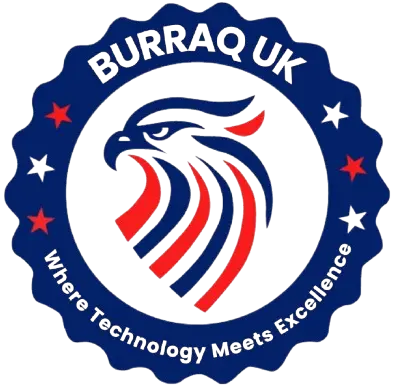ISO 22000 Food Safety Management System Internal Auditor
ISO 22000:2018 is an internationally recognized standard that outlines the requirements for a Food Safety Management System (FSMS). It combines and supplements core elements of ISO 9001 and Hazard Analysis and Critical Control Points (HACCP) to ensure food safety at every stage of the supply chain — from farm to fork.
The ISO 22000 Internal Auditor training course is designed to equip participants with the skills and knowledge needed to conduct internal audits of a Food Safety Management System, evaluate compliance, and support continual improvement within food-related operations.

Aim of ISO 22000 Food Safety Management System Internal Auditor
The aim of this course is to:
- Provide participants with the knowledge and skills required to audit a Food Safety Management System (FSMS) based on ISO 22000:2018 requirements.
- Enable learners to plan, conduct, report, and follow up on internal audits in line with ISO 19011:2018 auditing guidelines.
- Ensure participants understand how to assess an organization’s ability to manage food safety hazards, maintain hygiene standards, and comply with legal and regulatory food safety requirements.
- Promote the effective implementation of risk-based thinking, PRPs (Prerequisite Programs), and HACCP within the audit process.
- Support organizations in achieving continual improvement of their food safety systems through internal auditing.
Course Overview
ISO 22000 Food Safety Management System Internal Auditor
Total Modules 6
Training Credits 24
Directed Learning Hours (DLH) 120
Course Code BUK1947
- Food Safety Officers / Managers
Responsible for implementing or overseeing food safety processes. - Quality Assurance (QA) / Quality Control (QC) Professionals
Involved in ensuring product quality and compliance with food safety standards. - Internal Auditors / ISO Coordinators
Already conducting or planning to conduct audits of food safety or other ISO systems. - HACCP Team Members / Leaders
Actively involved in hazard analysis and critical control point systems. - Production, Packaging, or Supply Chain Staff
Those involved in the manufacturing, handling, or logistics of food products. - Regulatory & Compliance Officers
Monitoring food safety laws, regulations, and certifications. - Students or Graduates
From food technology, microbiology, biotechnology, nutrition, or food engineering backgrounds looking to build a career in food safety auditing.
| Course Code | Curriculum Title | Credit | DLH |
|---|---|---|---|
| BUK1947-1 | Introduction to ISO 22000 & Food Safety Principles | 3 | 15 |
| BUK1947-2 | Understanding ISO 22000:2018 Requirements | 3 | 15 |
| BUK1947-3 | Introduction to Internal Auditing | 3 | 15 |
| BUK19474 | Introduction to Auditing (Based on ISO 19011:2018) | 3 | 15 |
| BUK1947-5 | Audit Planning and Preparation | 3 | 15 |
| BUK1947-6 | Conducting the Audit | 3 | 15 |
| BUK1947-7 | Case Studies and Practical Exercises | 3 | 15 |
| BUK1947-8 | Audit Reporting and Follow-up | 3 | 15 |
Module 1: Introduction to ISO 22000 & Food Safety Principles
- Overview of food safety and FSMS
- Structure of ISO 22000:2018 and its integration with ISO High-Level Structure (Annex SL)
- Key definitions and concepts: PRPs, OPRPs, CCPs, HACCP, risk-based thinking
Module 2: Understanding ISO 22000:2018 Requirements (Clause-by-Clause)
- Clause 4: Context of the organization
- Clause 5: Leadership and commitment
- Clause 6: Planning (including risk assessment and food safety objectives)
- Clause 7: Support (resources, communication, documentation)
- Clause 8: Operation (including PRPs, hazard control plan, traceability, emergency preparedness)
- Clause 9: Performance evaluation (monitoring, analysis, internal audit, management review)
- Clause 10: Improvement (nonconformity, corrective action, continual improvement)
Module 3: Introduction to Internal Auditing (Aligned with ISO 19011:2018)
- Types and purposes of audits (1st, 2nd, 3rd party)
- Principles of auditing and auditor competencies
- Responsibilities of auditors and auditees
- Risk-based auditing approach
Module 4: Audit Planning and Preparation
- Developing an audit plan and program
- Setting audit objectives, scope, and criteria
- Preparing audit checklists and documentation review
- Selecting audit teams and roles
Module 5: Conducting the Audit
- Opening meeting and communication techniques
- Gathering audit evidence (interviews, observations, document sampling)
- Identifying and classifying nonconformities
- Recording audit findings with objectivity
Module 6: Audit Reporting and Follow-up
- Writing effective and factual audit reports
- Conducting the closing meeting
- Issuing nonconformity reports (NCRs)
- Follow-up and verification of corrective actions
Module 7: Case Studies and Practical Exercises
- Real-life food safety audit scenarios
- Audit checklist preparation
- Group work: identifying food safety risks and nonconformities
- Practice audits and peer review
Module 8: Final Assessment and Certification
- Written or practical assessment
- Feedback session
- Issuance of course completion certificate (Internal Auditor Level)
- Food Safety Officers / Managers
- Quality Assurance (QA) / Quality Control (QC) Personnel
- HACCP Coordinators / Team Members
- Production, Processing & Packaging Supervisors
- Internal Auditors / ISO Coordinators
- Supply Chain and Logistics Managers (in food industry)
- Regulatory and Compliance Officers
- Food Safety Consultants and Trainers
- entre and externally verified by BURRAQ UK. The program uses a criterion-referenced assessment approach to ensure that learners successfully meet all required learning outcomes.
- A Pass in any unit is granted only when the learner submits valid, reliable, and authentic evidence that demonstrates achievement of the assessment criteria. The Assessor is responsible for reviewing this evidence and confirming that the learner has attained the expected standard.
